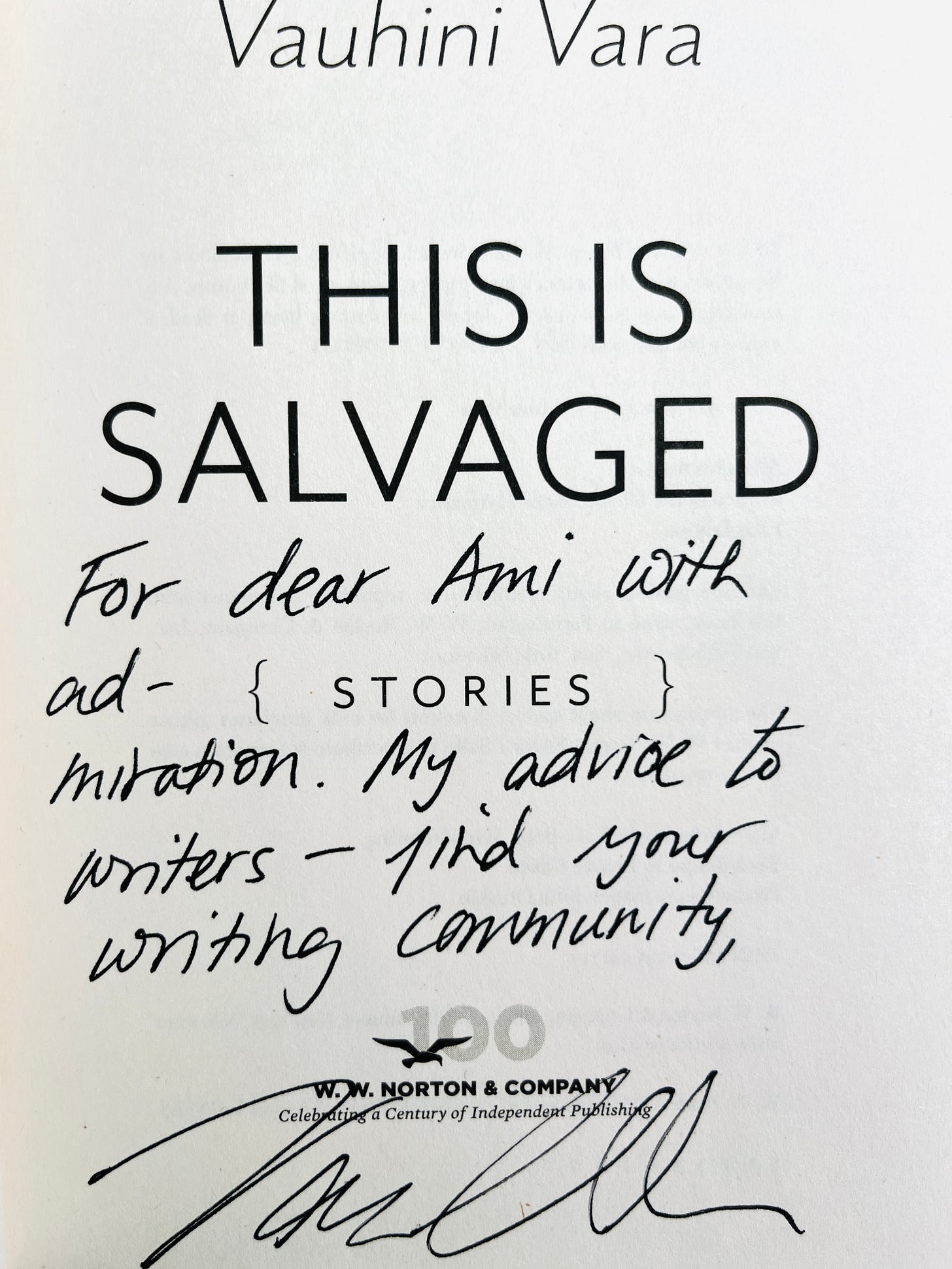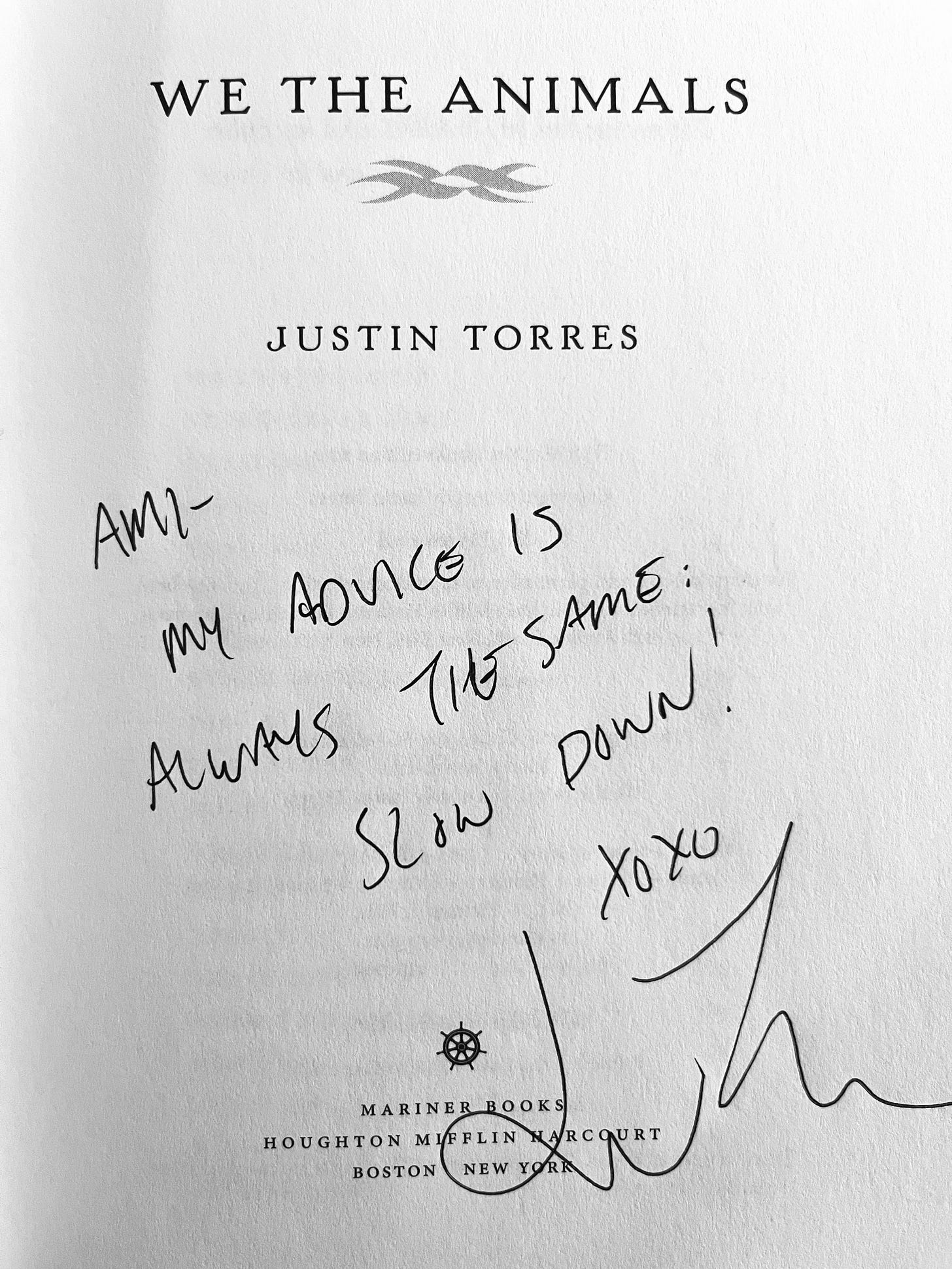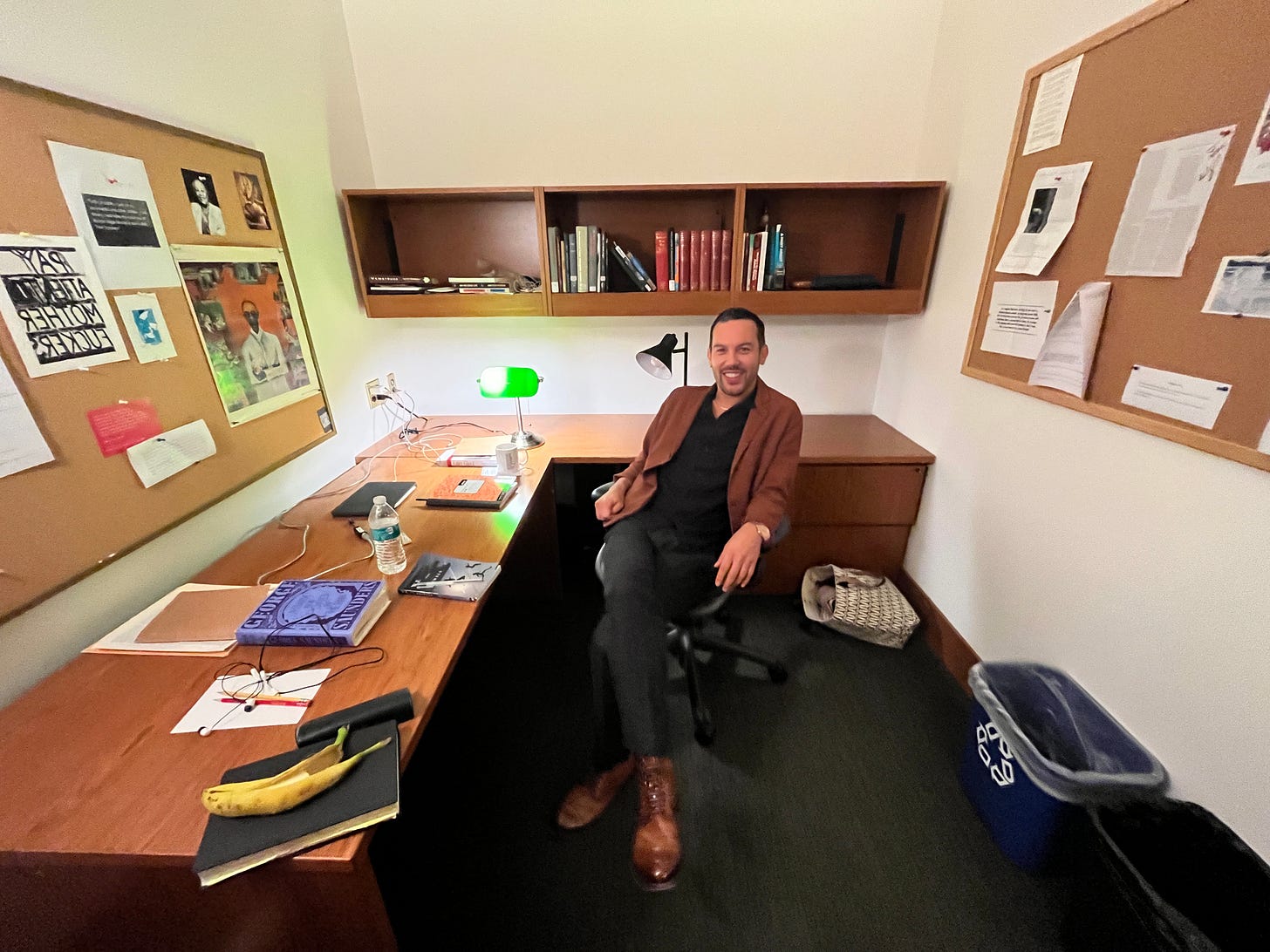Advice for writers
A new report from the Cullman Center
During a public conversation with Salman Rushdie on stage in New York City, I asked if he had advice for postcolonial writers. Rushdie said he had a rule for young writers: “There must be no tropical fruits in the title. No mangoes, no guavas. None of those. Tropical animals are also problematic. Peacock, etc. Avoid that shit.” (More of that exchange is to be found here.) I have made it a practice of mine to ask writers for advice. Back in 2020, in the New York Times Book Review, I had published a few examples of what various writer-friends had written when signing copies of their books. Compiled in that list are the words of Lydia Davis, Yiyun Li, Tommy Orange, Zadie Smith, Colum McCann, Mark Doty, Jamaica Kincaid, and Jenny Offill. (Jenny Offill’s advice, for instance, is: “If you want to write, don’t have a backup plan. Also, always put a dog in your book.”) In the past few weeks, weeks during which I have continued to not write, I have been diligent about collecting advice from writers who have come through the Cullman Center.
A quick aside first: Salman Rushdie was the first visitor to my new office. His new book, Knife, with its striking cover, comes out next year. He told me he was reading the galley of my forthcoming novel, My Beloved Life. My heart skipped a beat or three when he said that. He then said that he liked it. Some time passed and then I was the giddy recipient of this fabulous endorsement from him:
“This profound book is full of lives whose beauty lies in the wholeness of their telling. A father, a daughter, a crime, a country being born, a migration, another country, a plague. ‘We are in touch with a great astonishing mystery when we put honest words down on paper to register a life and to offer witness. Everything else is ordinary,’ Kumar writes. His novel offers magnificent witness, and is not ordinary but extraordinary.”
Here are the pieces of advice that other writers have offered during my time at Cullman Center:
Slow down? What did Justin Torres mean? Did he mean slow down one’s sentences, pause on certain words, and then the pauses between words, ought one to slowly take in the world, dwell on details? Or did he mean take more time between books? Justin had been a Cullman Fellow some years earlier and he had the office that I now have. I should have pressed him for an answer while he posed in my chair, having politely discarded the banana he had been eating till then.
So many writers with extravagant gifts have worked in that room. It is more than a little bit scary. At which point, in order to gather courage for work, the only advice I choose to remember is the one that many writers repeat, namely, write what only you alone can write.









I loved his response to your book. And I keep thinking about Louise Gluck’s many comments about her long periods of silence and how essential they were to her work. The refill below the surface after finishing an extraordinary book.
I really enjoyed this post!!